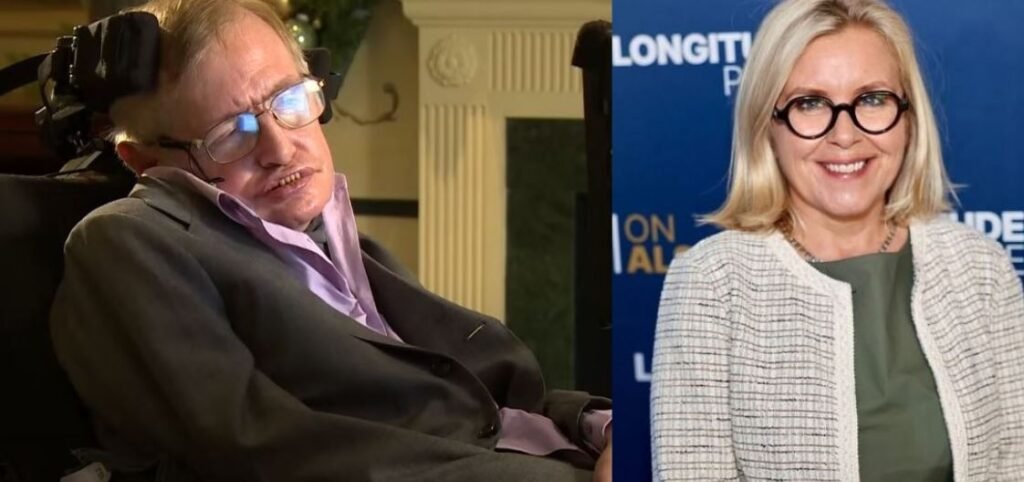
Stephen Hawking’s name has come to represent theoretical physics, black holes, and human tenacity in recent decades. However, his legacy also endures subtly and perhaps more poignantly through his three children, Timothy, Lucy, and Robert Hawking, each of whom carries pieces of his personal, emotional, and intellectual universe.
The oldest of the three, Robert Hawking, was born in 1967 and at first demonstrated a strong interest in science. Despite being influenced by his father’s imposing intelligence, Robert decided to take a different but still very honorable route. By many accounts, he established a very successful professional life away from the academic spotlight by pursuing a career in software engineering. He has experience working for large tech companies like Microsoft and currently resides in the United States. Robert’s analytical background reflects the same methodical thinking that characterized his father’s career, despite his reserved demeanor. Robert’s method is a practical manifestation of innate genius and is remarkably successful in his field.
Stephen Hawking – Family and Career Overview
| Name | Stephen William Hawking |
|---|---|
| Birth Date | January 8, 1942 |
| Death Date | March 14, 2018 |
| Occupation | Physicist, Cosmologist, Author |
| Children | Robert, Lucy, and Timothy Hawking |
| Spouses | Jane Hawking (1965–1995), Elaine Mason (1995–2006) |
| Known For | Hawking radiation, A Brief History of Time |
| Official Website | www.hawking.org.uk |
Of the three siblings, Lucy Hawking, who was born in 1970, is the most outspoken. Lucy, a writer, journalist, and ardent supporter of children’s scientific literacy, has written a number of books that combine intricate scientific concepts with narrative. Notably, she and her father co-wrote the George’s Secret Key series, which was a particularly creative attempt to connect children’s literature and cosmic theory. Lucy has made science understandable to younger minds through her exceptionally clear communication, which even Stephen Hawking acknowledged was “perhaps the most important work” in his later years. Her narrative skill and emotional intelligence are demonstrated by her ability to turn her father’s astrophysical theories into stories about space travel.
The most mysterious of the siblings is Timothy Hawking, who was born in 1979. Although the specifics of his parentage have frequently been the subject of public curiosity, his mother, Jane Hawking, has always been very clear: Timothy is Stephen’s son. Timothy’s father had motor neurone disease, which made it difficult for him to communicate with him as a child. Ironically, father and son didn’t really start to connect until Stephen started using a voice synthesizer. The communication gap between them was greatly diminished by that disability-overcoming technology. According to Timothy, those discussions changed his life, and “Dad losing his voice was actually the beginning of us really talking.”
After completing his studies in business, Timothy now works in corporate strategy, frequently avoiding public settings. He occasionally makes an appearance at scientific gatherings or family remembrances of his father’s legacy, always with poised dignity and perceptive comments. He captures the emotional subtleties of growing up with a father who is respected throughout the world but who is occasionally physically far away through well-chosen words.
According to friends and family, the Hawking household was especially quirky but grounded. Meals were frequently silent, with each person engrossed in a book. The kids were raised surrounded by thinkers, science, and technology. However, they also went through the emotional upheaval that came with Stephen’s second marriage, celebrity, and disability. The children subsequently characterized their father’s 1995 marriage to Elaine Mason as years of separation. They had significantly less contact with their father during that time, which caused both public and private concern.
However, the family started to mend by 2006 following Stephen and Elaine’s divorce. The children returned to his everyday life, reunited by time, necessity, and affection. He and Lucy worked together professionally. Robert got back in touch more discreetly. In infrequent interviews, Timothy found his voice and spoke with remarkable emotional clarity about his father’s intelligence and vulnerability.
The Hawking children provide society with a unique story about how the offspring of scientific trailblazers balance expectations, legacy, and personal goals. They have blazed trajectories that are profoundly human, surprisingly modest in ambition, and frequently intellectually grounded, in contrast to celebrity heirs who seek attention. Despite being framed by tragedy and celebrity, their story is also one of resilience and fortitude.
They weren’t just there for the formalities at Stephen Hawking’s funeral in Cambridge in 2018. It was a moment of full circle. Each sibling represented a facet of their father’s life: Timothy, the close observer of technological resiliency; Lucy, the link between science and emotion; and Robert, the rational system-builder. They add to Hawking’s tale in different ways, relying more on connections, ingenuity, and intensely personal bravery than on black hole equations.
The Hawking legacy keeps changing thanks to Timothy’s reflections, Lucy’s writing, and Robert’s technical contributions. Not through scholarly works or scientific discoveries, but rather through intensely personal and universally relatable moments. From telescope-filled birthday parties to galaxy-themed bedtime stories, Stephen Hawking’s children have led remarkable lives influenced by both emotional and physical gravity.
